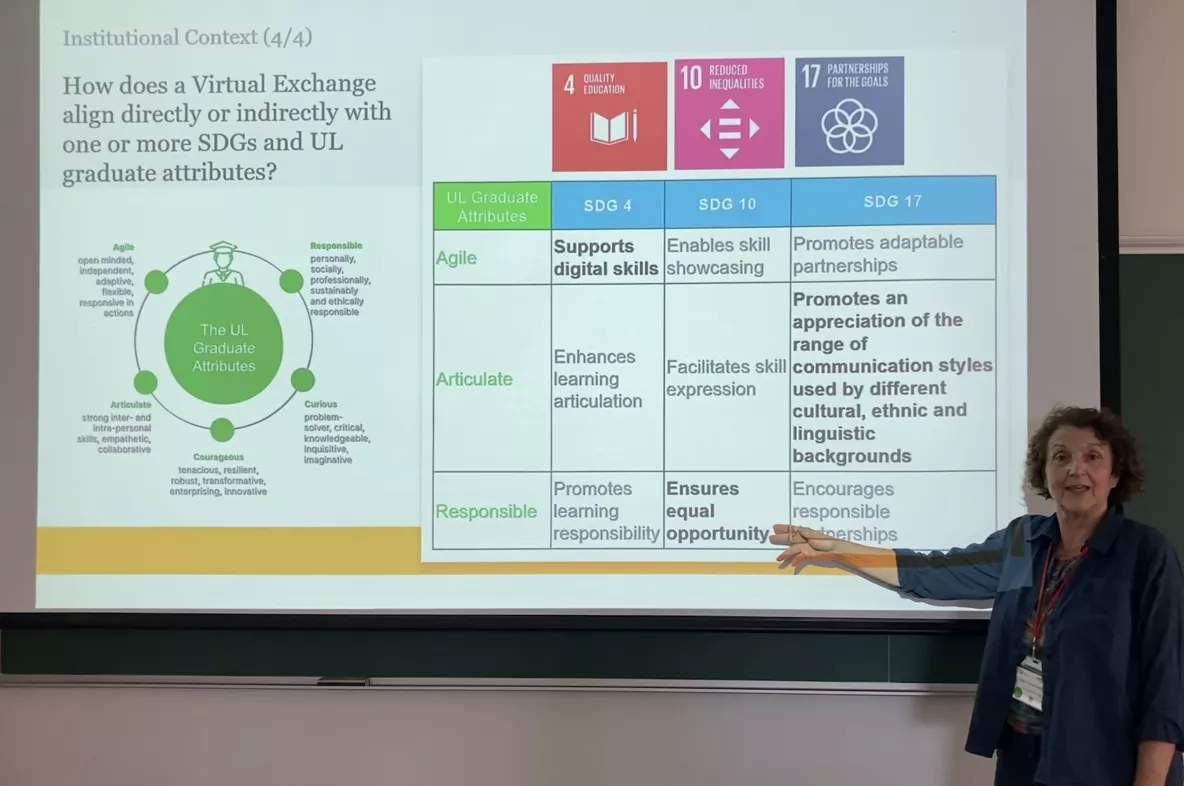

Dr Marie-Thérèse Batardière presented at the Multidisciplinary Approaches in Language Policy and Planning Conference held at Carleton University, Ottawa, Canada, 27-30 June 2024. The purpose of the presentation was to report on a Virtual Exchange project for undergraduate language students across European universities. It shows that internationalisation of the curriculum can support a transformative learning experience for undergraduate language students at UL.
The University of Limerick strategy for internationalisation of the curriculum (2022-2027) aligns with European Commission policies and programmes seeking to promote blended learning. This includes integrating a combination of physical and virtual forms of mobility into the curriculum in Higher Education (O’Dowd, 2021) and reflects calls for more equitable and inclusive approaches to learning (UN Report, 2015). Moreover, the European University Association (2020) stresses the importance of actively encouraging initiatives such as Online Intercultural Exchange (OIE), commonly known as Virtual Exchange (VE), and states that the potential of technology should be explored to ensure that international learning experiences remain transformative, while also being sustainable.
With this in mind, Erasmus Speaks, an innovative, transnational project was set up in 2020 to accommodate a virtual mobility period for undergraduate language students across six European universities. In a post-pandemic context, this VE project acts as a complement to the study-abroad period. It requires students to interact, collaborate and co-construct knowledge within a multi-modal, task-based framework. Our study draws on quantitative and qualitative data from student feedback to evidence that the project is meeting its objectives in increasing target language exposure, facilitating cross-cultural dialogue and building transferable skills. Findings also show that this learning approach leads to increased student engagement and offers a suitable learning environment where transformative language learning can occur (Nerstrom, 2014).
Email: ahss@ul.ie
Phone: +353-61-202700
Postal Address: AHSS Faculty Office, University of Limerick, Limerick, Ireland.